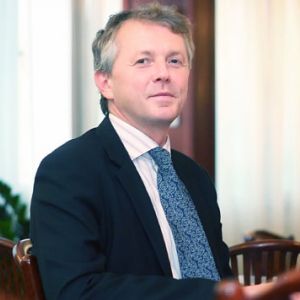Hungarian Expert Joins Government
The respected head of a Budapest-based energy policy institute has been appointed Hungary's new state secretary (junior minister) for climate and energy policy at the ministry of innovation and technology.
Peter Kaderjak was appointed May 29 to the government position, having been director of the REKK (regional centre for energy policy research) of the Corvinus University of Budapest for 14 years until 2018. REKK says he remains a senior research associate there but is on "temporary leave" due to his government appointment.
Prior to 2004, Kaderjak was appointed as chief of cabinet to the economy minister in 1998 and worked on liberalising the country's electricity and gas sectors and from January 2000 he served as president of the Hungary's national energy regulator for four years. He will now report to innovation and technology minister Laszlo Palkovics, a politician, mechanical engineer and university professor who until the start of this month was a state secretary for education.
Kaderjak's liberalising efforts in the early 2000s were partly unravelled when the government instituted a gas freeze around five years ago, prompting E.ON to divest its strategic Hungarian gas business in 2013 to the state-owned utility MVM.
More recently, Hungary's government under Viktor Orban, whose second term as prime minister began in May 2010, has increasingly turned to its main gas supplier Russia and away from the EU-promoted notion of diversifying its gas supplies, whereas Kaderjak and REKK have broadly endorsed some diversification and voiced reservations about Gazprom's Nord Stream 2 project.
Under Orban's second term, the PM's governing Fidesz political party has moved from the centre to the right. Kaderjak was recently described by Bloomberg as one of the founders in the 1980s of Fidesz but one who was no longer politically active.

Peter Kaderjak (Photo credit: REKK)
Hungarian oil and gas group Mol meanwhile announced May 30 that its chairman since 2011, Gyorgy Mosonyi, has died at the age 69 after a long illness. He joined Mol in 1999 as CEO and served for 12 years, having worked during the previous 25 years first for Mol's predecessor company Afor and then later for Shell, including two years in the late 1990s as head of Shell’s central and eastern Europe division.



